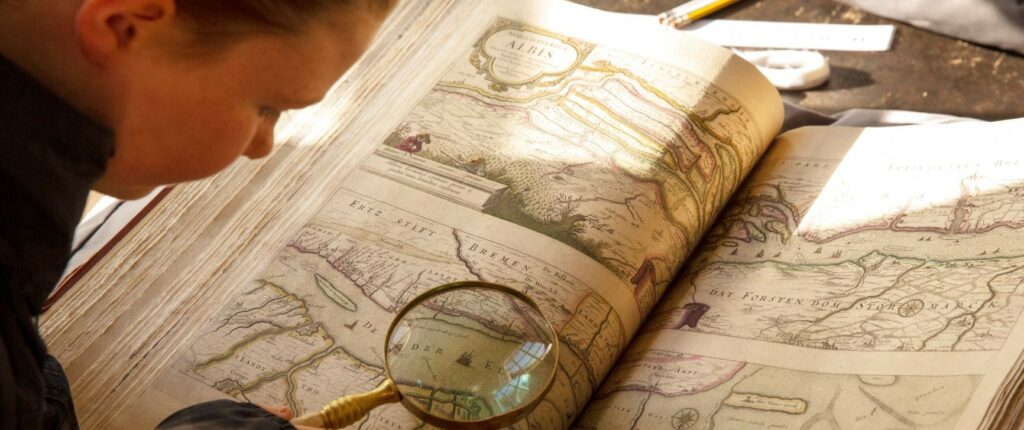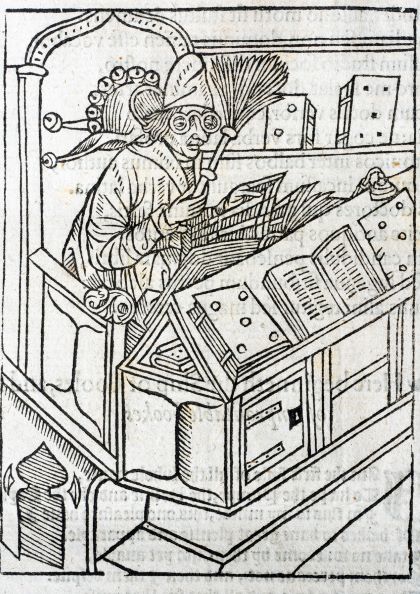
Explore our Books
Literally touch the past…
We have books on a huge range of subjects – from gardening to witchcraft or from algebra to zoology! Would you like to see the handwriting of Robert Burns? Are you interested in reading the latest news on the Jacobite Rebels? How about getting your teeth into the first printed recipe for haggis – or 18th century dentistry? Perhaps you’d rather gaze at pictures of strange creatures from unknown lands or explore the world through our atlas and travel books? You may even find the books borrowed by your ancestors – then hold history in your hands.
The collection at The Library of Innerpeffray includes books from as early as 1476 to as recent as 2001. When you visit we always have a selection of books on display in our exhibitions and you can handle and turn the pages of most of the books in the Library (though we limit access to the most fragile volumes).
Search the Innerpeffray catalogue here
If you have a query about the catalogue or are seeking a specific book, please email the Keeper library@innerpeffraylibrary.co.uk
Book of the Moment

The Ship of Fooles
Sebastian Brant wrote Stultifera Navis in 1494, originally in German. It was translated into several languages and English version is by Alexander Barclay. It takes the image of the ship of fools to describe the folly and weaknesses of man, using strong metaphor, satirical verse and evocative woodcut illustrations. The Library’s edition is from 1570 and begins with the Bibliofool – cursed with the folly of reading ‘unprofitable’ books.
Explore more Innerpeffray Stories in our blog.
More about our collections
The Library collection is rich and varied one, with books from the 16th and 17th centuries to the present day. It has been added to over time, often in an ad hoc basis, though primarily it is made up of the three main collections as described below.
Visitors are welcome to view any of the books in the collection when they visit. Advance notice is not required, but it is helpful to know beforehand if you wish to look at specific books, or subjects. Occasionally books are on loan to other museums or being repaired and therefore not available, so please do check if you are making a special journey.
The Founder’s Collection
David Drummond, 3rd Lord Madertie created the Library using his own collection of approximately 400 books. These reveal him to be a man of wide interests including history, law, politics, gardening, and the pursuits of a gentlemen such as honour and hunting, as well as, of course, religious contemplation and discussion. The early books include treasures such as:
Poisson, Pierre Belon , Paris 1555, Cosmographie, by Sebastian Munster 1575, Chronicles, Raphael Holinshed, London 1577, Henry VIII Great Bible, 1539.
The Eighteenth Century Collection
When Robert Hay Drummond, Archbishop of York, commissioned the present Library building in the 18th century he added a considerable collection from the new books available at the time. A note of ‘books proposed to be bought into the Library at Innerpeffray, as occasion offers’ from May 1744 shows that care was taken to acquire the latest and the best in subjects such as ‘Divinity, Classicks, History’ .
The Scottish Collection
In 2013 the Library’s stock was significantly enriched when it received the unprecedented donation of the collection of rare Scottish books and documents collected by the American bibliophile Janet Burns Saint Germain. Among them is what is now Innerpeffray’s earliest book, and only example of incunabula, the 1476 edition of the works of philosopher and theologian John Duns Scotus. The Scottish Collection mainly consists of first editions, some of the treasures include a number by Scottish philosopher David Hume and Samuel Johnson’s Journey to the Western Isles (1775) and Robert Louis Stevenson’s Treasure Island (1882). There is also a very special collection of material by poet Robert Burns including a copy of the song Wilt Thou Be My Dearie in his own handwriting and various early editions of his Poems, Chiefly in the Scottish Dialect including the Kilmarnock edition and the first edition to be printed in America.
